Reading Recommendations: Black Memoirs
A new month means another batch of reading recommendations! This month’s theme is Black Memoirs (memoirs by Black authors). I’ve read so many I’ve enjoyed but here are just some of my picks.
Obviously: Stories From My Timeline by Akilah Hughes
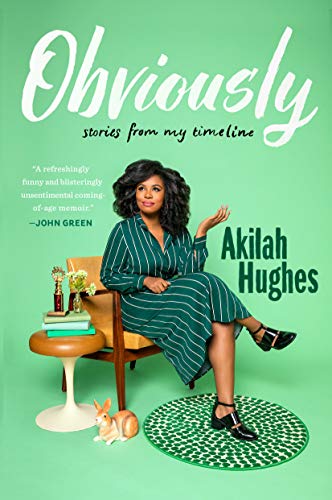
In Akilah Hughes’s world, family–and life–are often complicated, but always funny. Through intimate and hilarious essays, Akilah takes readers along on her journey from the small Kentucky town where she was born–and eventually became a spelling bee champ and 15-year-old high school graduate–to New York City, where she took careful steps to fulfill her dream of becoming a writer and performer. Like Tiffany Haddish’s The Last Black Unicorn or Mindy Kaling’s Is Everyone Hanging Out Without Me? for the YA set, Akilah pens revealing and laugh-out-loud funny essays about her life, covering everything from her racist fifth grade teacher, her struggles with weight and acne, her failed attempts at joining the cheerleading team, how to literally get to New York (hint: for a girl on a budget, it may include multiple bus transfers) and exactly how to make it once you finally get there.
This coming-of-age memoir is laugh out loud funny from beginning to end (to the point I was in tears). Reading this book felt like speaking to a longtime friend/older family member as she recounts life lessons and her path from childhood to being a comedian. I was unfamiliar with Akilah before reading this book but I’m glad about to learn about her. While hilarious this book is relatable and discusses some harsh truths as well. Her writing voice felt very candid and I came away with “food for thought” after reading her memoir. It’s a book about perseverance and to keep moving forward no matter what obstacles are thrown your way.
To Hair and Back: My Journey Toward Self-Love One Strand at a Time by Rhonda Eason
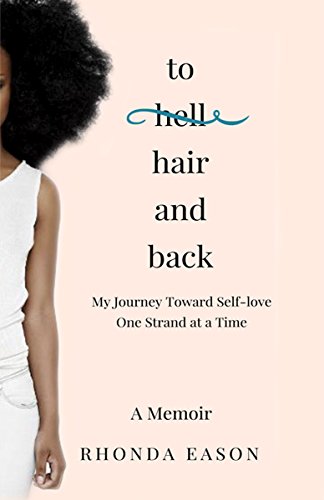
If hair was a woman’s crowning glory, then why did Rhonda Eason have a mass of uncontrollable tumbleweed at best? At worst, it was a source of frustration and self-condemnation. Raised in a family of women born with tresses suitable for romance novel heroines, Rhonda was apathetic toward her kinky coils, and, in turn, herself. To Hair and Back – My Journey Toward Self-Love One Strand at a Time is a debut memoir that details her quest for the perfect head of hair and the discovery of something far more meaningful. In this endearing personal narrative, she explores the question: If I am not my hair, then who am I?
This is a memoir written about the author’s life and her hair journey while growing up. As a Black woman, I could connect with Eason’s narrative as we go through different types of hair journeys in our life. And in reading her story I could reflect on my own continual hair journey in my own life. Easton takes us through snippets of her life in each chapter that share memories of her family, life experiences, and some of the trauma she endured because of her hair. One of the main reoccurring themes in the book was the choice to have natural hair vs relaxers, how race ties into various hairstyles, and beauty standards. (Review)
Carefree Black Girls by Zeba Blay
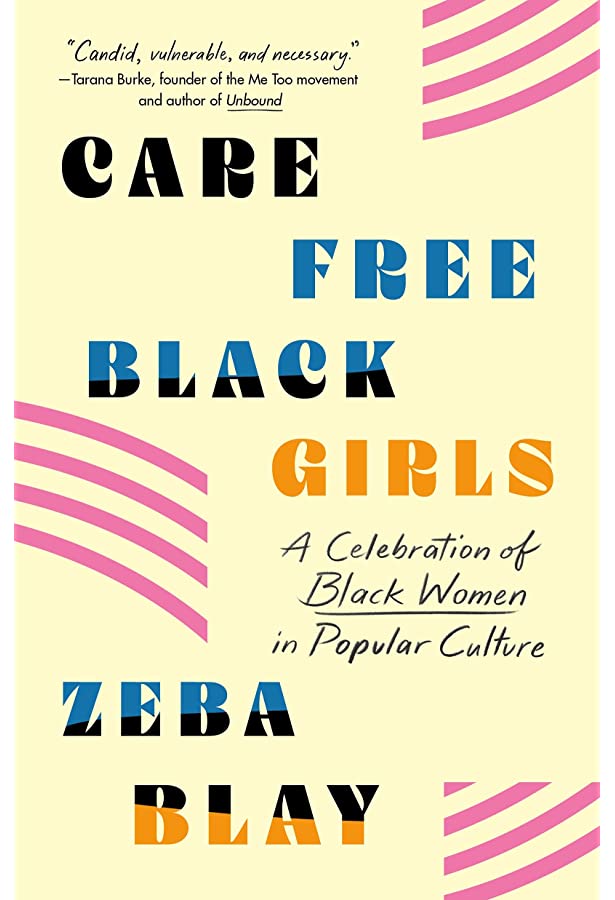
In 2013, Zeba Blay was one of the first people to coin the viral term “carefreeblackgirls” on Twitter. It was, as she says, “a way to carve out a space of celebration and freedom for black women online.”
In this collection of essays, Blay expands on that initial idea by looking at the significance of influential black women throughout history, including Josephine Baker, Michelle Obama, Rihanna, and Cardi B. Incorporating her own personal experiences as well as astute analysis of these famous women, Blay presents an empowering and celebratory portrait of black women and their effect on American culture. She also examines the many stereotypes that have clung to black women throughout history, whether it is the Mammy, the Angry Black Woman, or more recently, the Thot.
This is a powerful book of essays by Blay who discusses her own life’s experiences as a Black woman in America and Black women in pop culture. This memoir is vulnerable and emotional, but it doing so allows you to connect to Blay’s various thoughts. Blay discusses the struggles and joy of being a Black women in today’s society. While this is a memoir the novel felt like a larger, detailed essay about race as whole. I appreciate how the books were setup in each section. The book talks about pop culture through the lens of topics such as mental health, stereotypes, hair politics, the internet, and more. It was a meaningful memoir full of passion and honesty, while being critical.
This Is Major: Notes on Diana Ross, Dark Girls, and Being Dope by Shayla Lawson
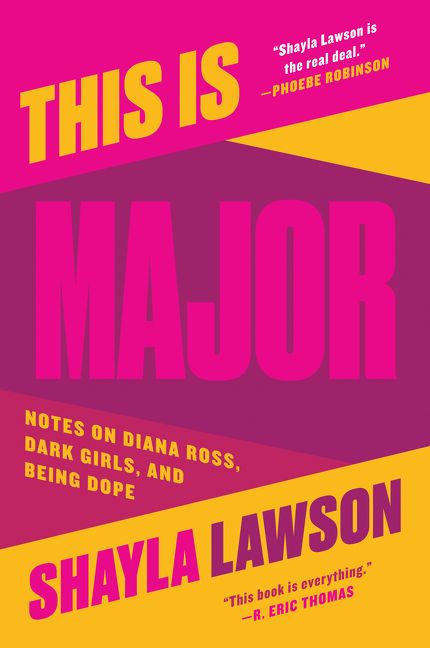
Shayla Lawson is major. You don’t know who she is. Yet. But that’s okay. She is on a mission to move black girls like herself from best supporting actress to a starring role in the major narrative. Whether she’s taking on workplace microaggressions or upending racist stereotypes about her home state of Kentucky, she looks for the side of the story that isn’t always told, the places where the voices of black girls haven’t been heard.
The essays in This is Major ask questions like: Why are black women invisible to AI? What is “black girl magic”? Or: Am I one viral tweet away from becoming Twitter famous? And: How much magic does it take to land a Tinder date?
With a unique mix of personal stories, pop culture observations, and insights into politics and history, Lawson sheds light on these questions, as well as the many ways black women and girls have influenced mainstream culture—from their style, to their language, and even their art—and how “major” they really are.
This is Major is a book full of essays about the author’s experience as a Black woman and her thoughts on Black women in the media, pop culture, legacy, and so much more. There’s a lot to unpack in this collection of thoughts, but I enjoyed it thoroughly from beginning to end. There are so many important narratives, awareness about many issues are brought to light, there are fun musings on life’s experiences, and an overall deeper conversation about race. Lawson reflects on how life’s experiences have shaped her through the years and into the woman she has become today. (Review)
Token Black Girl by Danielle Prescod
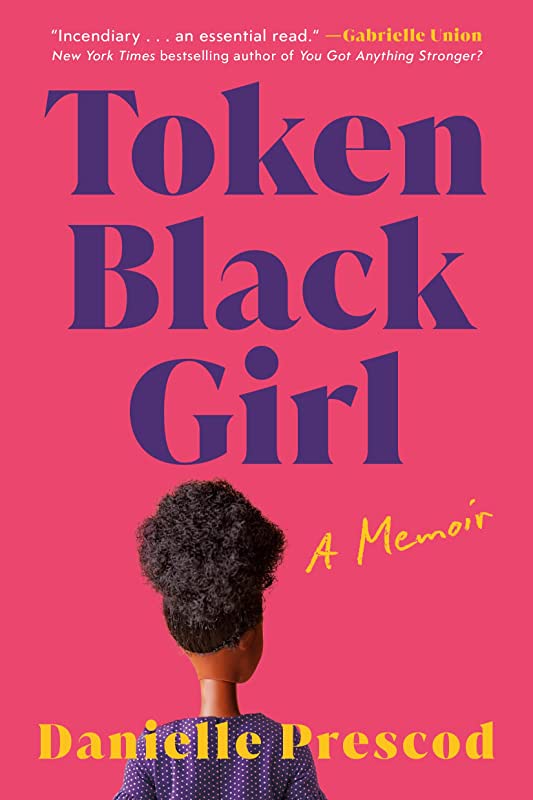
Danielle Prescod grew up Black in an elite and overwhelmingly white community, her identity made more invisible by the whitewashed movies, television, magazines, and books she and her classmates voraciously consumed. Danielle took her cue from the world around her and aspired to shrink her identity into that box, setting increasingly poisonous goals. She started painful and damaging chemical hair treatments in elementary school, began depriving herself of food when puberty hit, and tried to control her image through the most unimpeachable, impeccable fashion choices.
Sharp witted and bracingly candid, Token Black Girl unpacks the adverse effects of insidious white supremacy in the media—both unconscious and strategic—to tell a personal story about recovery from damaging concepts of perfection, celebrating identity, and demolishing social conditioning.
This memoir at times is difficult to read but is a very important book. Prescod vividly recounts her childhood to the present day about navigating predominately White spaces as a Black Woman. She discusses how she felt like an outsider in many crowds while struggling with racism, sexism, body image, and more. Being that I’ve shared a lot of experiences as Danielle did I felt very connected to her story. She doesn’t sugarcoat her story at all and for some readers, this memoir will be an eye-opening experience. It may seem like her experiences (she discusses) are hidden in plain sight but it’s a larger conversation about how many people don’t want to be faced with an ugly truth of today’s society.
You Can’t Touch My Hair: And Other Things I Still Have to Explain by Phoebe Robinson
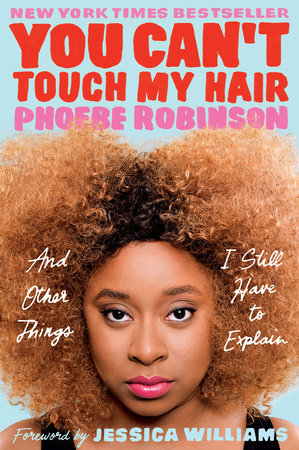
Phoebe Robinson is a stand-up comic, which means that, often, her everyday experiences become points of comedic fodder. And as a black woman in America, she maintains, sometimes you need to have a sense of humor to deal with the absurdity you are handed on the daily. Robinson has experienced her fair share over the years: she’s been unceremoniously relegated to the role of “the black friend,” as if she is somehow the authority on all things racial; she’s been questioned about her love of U2 and Billy Joel (“isn t that . . . white people music?”); she’s been called “uppity” for having an opinion in the workplace; she’s been followed around stores by security guards; and yes, people do ask her whether they can touch her hair all. the. time. Now, she’s ready to take these topics to the page and she s going to make you laugh as she s doing it.
You Can’t Touch My Hair is a book that sets out to entertain and educate its readers about being a person of color in today’s society. Each chapter is its own essay on a variety of topics. One chapter is set around the politics of black hair and the choice to have natural hair vs. relaxed hair. Phoebe talks about her own personal hair journey and urges readers to do whatever makes them feel beautiful inside and out. Another chapter discusses things that need to change for the better: racial profiling when shopping, the NFL’s treatment of women, gender equality, etc. And some chapters have a more lighthearted tone when she talks about her guilty pleasures such as ordering too much food at McDonald’s.
That concludes my list of memoirs by Black authors that I highly recommend. What are some other recommendations by BIPOC authors you recommend? Let me know in the comments.
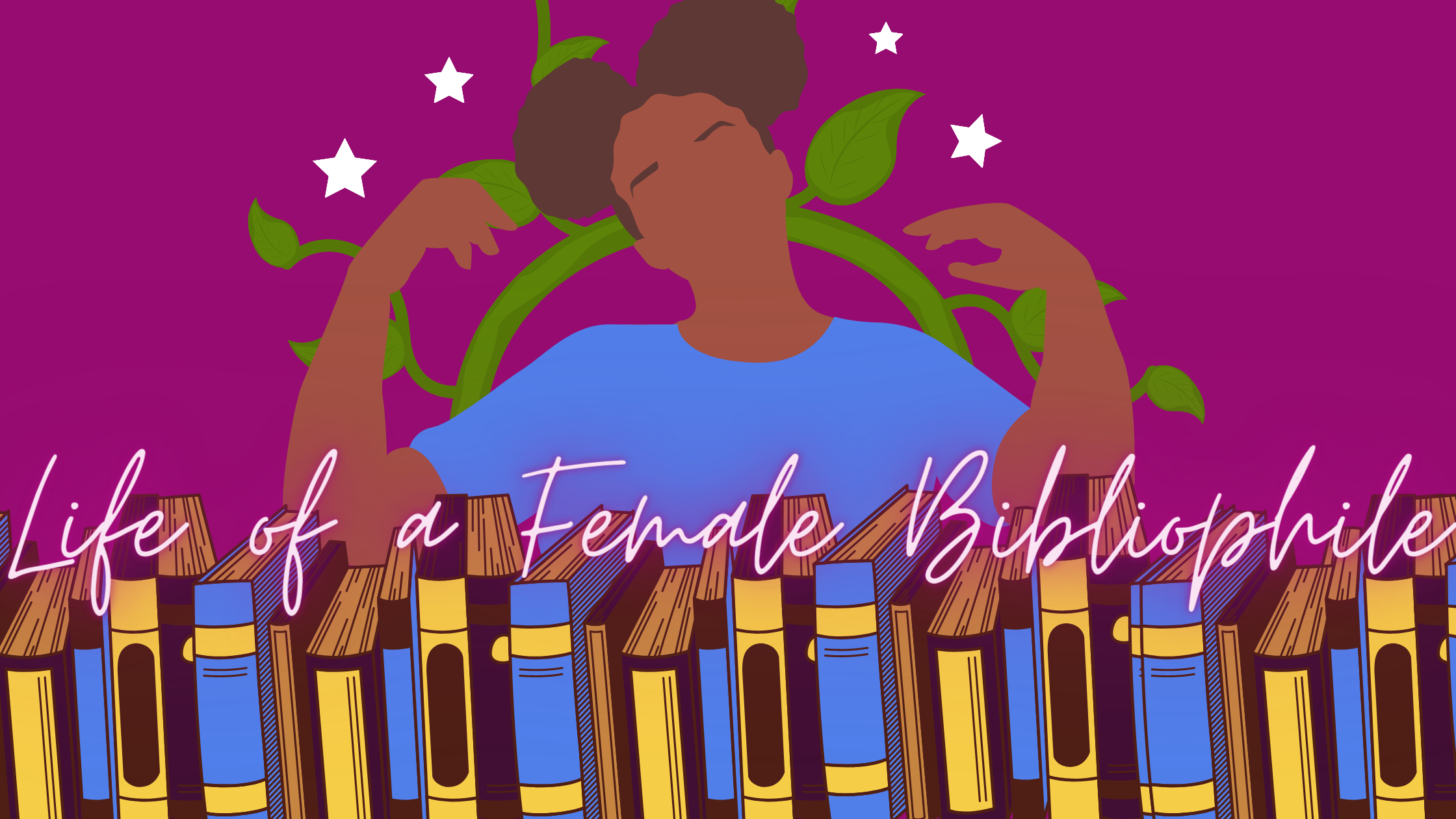
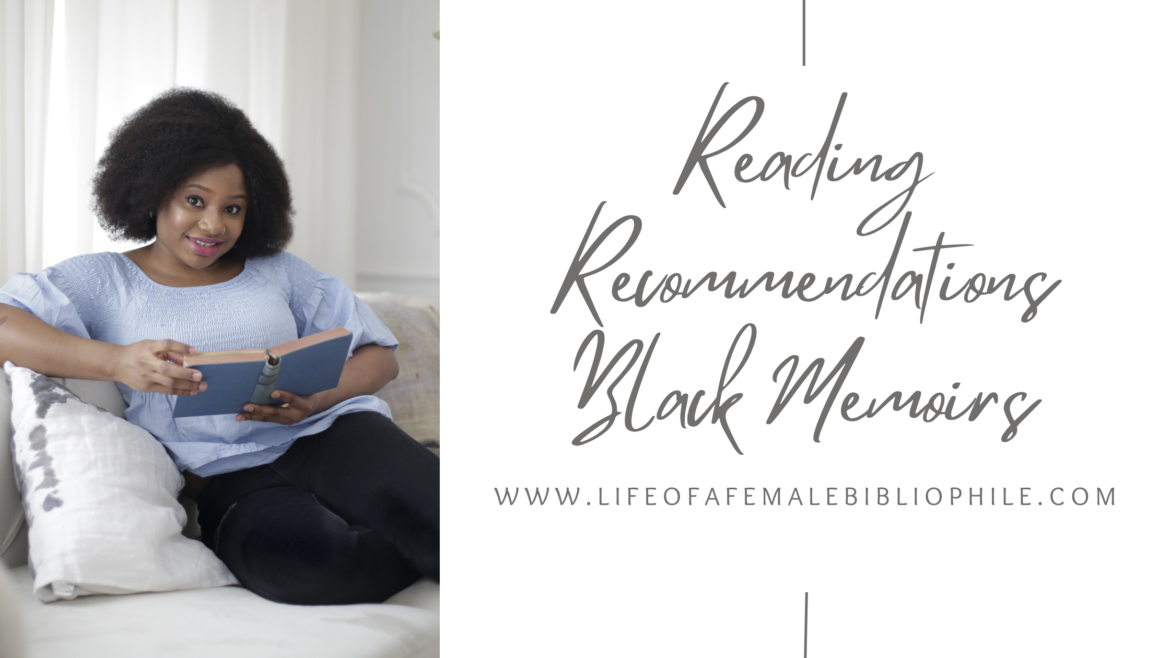
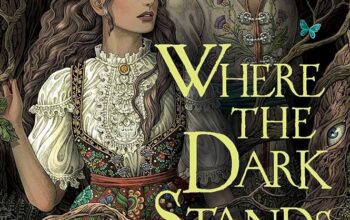
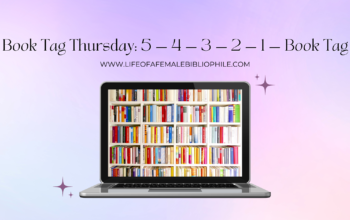
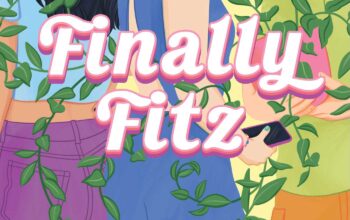
Excellent recommendations. I’ve read quite a few but they don’t overlap with these as probably more with a UK bias. “I’m Black So You Don’t Have to Be” by Colin Grant was an excellent recent read – a memoir in eight portraits of other people.
Thank you Liz. I’ll have to check out the Colin Grabtt book. Thanks for the rec!